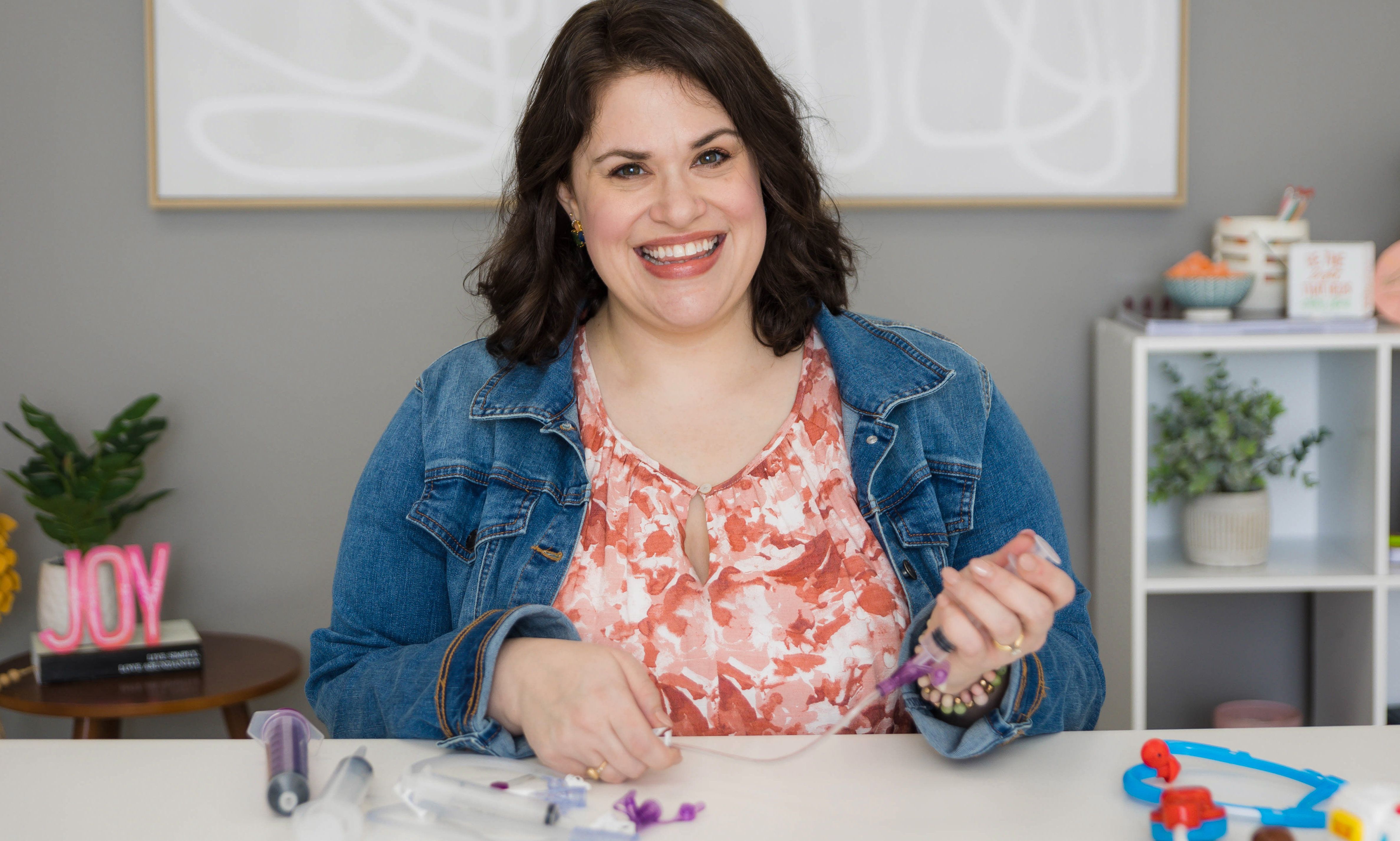
How to be a true friend to a parent carer
by Melanie Dimmitt
Nov 29, 2023
Here’s the predicament: many parent carers feel lonely and isolated. According to recent data from Carers UK, around 90 percent of people raising children with disability have experienced these feelings at one time or another. Meanwhile, their family members and friends want to be supportive, but don’t know what to say or how to help.
The answer? Show up and bring coffee.
These simple-yet-effective instructions are from Massachusetts-based writer and author Megan Amrich. They’re directed at those who want to be better friends to caregivers and, if anything, they’re a great way to break the ice.
As a mother to a young son with a rare genetic condition, Megan’s newly published book, Show Up and Bring Coffee: How to Support Your Friends With Disabled Children, explores nine ways that people can step in and help when a friend’s life is altered by a child’s diagnosis – each illustrated with personal anecdotes, pop-culture references and more.
Here, Megan shares why she felt compelled to write her book, examples of how we can show up for friends who are parent carers – and two little words this cohort never wants to hear.
Megan, how did you find your way into the disability community – and how do you feel now compared to how you felt at the start of your experience in this space?
My son, JB, has a rare genetic syndrome that causes, among other things, feeding issues, low muscle tone, and developmental delays. We received the diagnosis a few weeks before his first birthday, but we knew something was different when he was about two months old, as he was losing weight and not meeting developmental milestones.
By the time he was six months old, JB was diagnosed with “failure to thrive” and he had a feeding tube. That first year was by far one of the scariest times in my life. There were frequent hospital stays, specialists across the state, and a team of therapists involved. My background is in journalism and communications – not education, social work or medicine – and I felt completely out of my element.
I remember one physician told me once that, “Some day, you’ll be the one guiding others through this initial journey” – and I thought she couldn’t be more wrong! Almost seven years later, I still feel like I’m struggling to keep up, but I do feel like I have some footing on what it means to be a parent of a disabled, medically complex child.
How is JB going and what’s your favourite thing to do together at the moment?
JB is doing well right now. He’s in first grade, and he loves anything involving trucks, Star Wars, or music – especially Taylor Swift! Our favourite family activity right now is attending JB’s baseball games. He plays in a baseball league for kids of all abilities. It’s been great seeing him play with his peers and be surrounded by children who also may have mobility aids, AAC [augmentative and alternative communication] devices, feeding tubes, etc.
You’ve got a decade-strong career as a writer. When and why did you start writing about your experiences as a parent to a child with disability?
When JB was 18 months old, it became clear he could no longer attend daycare due to his increasing health needs, and it was best for our family if I left my job to stay home with him. I continued freelance writing and editing for my former employer, but I needed an outlet to write about my new role, as well. I started my blog – Joyful, Brave & Awesome – to try to be positive but also real about being a parent to a disabled child.
Is sharing this part of your story something that came naturally, or did it take time to get your flow?
From the beginning, I’ve had a few self-imposed rules that help me know what, and how, to share. This is MY story, not my son’s. JB will share if and when he wants to someday. That’s why I don’t share the name of his genetic syndrome, photos of his face, or specific details about his health. Once I had those guidelines down, it became more natural to know what I wanted to share.
You've written a book specifically designed to help friends of people who are raising kids with disability. Why?
There are a lot of books out there for parents of disabled children. But there aren’t books for people looking to support the caregivers. This made no sense to me, because statistically speaking all of us do or will know a family affected by disability, or neurodiversity, or complex medical needs. Even those of us with disabled kids can always use suggestions for ways we can help other parents and caregivers, or ways we can ask our support systems for help.
How did your experience with your own friendship group – and perhaps those of fellow parents in the disability space – inspire this project?
I am continually amazed by the ways my loved ones have supported me over the years, from gift cards to care packages to lots and lots of coffee! I will never forget the people who have shown up for us – in person or in spirit. And I want others to feel empowered to show up for their loved ones.
What are some things that people trying to support parent carers tend to get wrong, even with the best intentions?
Saying “at least…”
I understand the desire to want to cheer someone up, or remind them to look on the bright side, but statements starting with “at least” are rarely helpful to anyone but the person doing the talking. They give the impression that our emotions are easy to dismiss, or that we should feel guilty for not just being grateful.
What are some ways that friends can get it right (as well as reading your book, of course!)?
Don’t be afraid to ask questions. And let your children ask questions, as well. Disability isn’t something to be ignored or avoided or glossed over or treated as impolite. The best way to remove the stigma around disability is to be open and willing to learn. Similarly, expose your own children to disability through inclusive books, toys, TV programs, etc. I have lists on my website of many of my favourites!
Aside from friends, what other supports have you put around yourself so you can be the parent-carer you want to be for JB?
In addition to my loved ones (both family and friends) I have a great network of people I’ve met online – many of whom are disabled and/or parents of disabled children – who share a commitment to disability inclusion.
If you could only give one piece of advice on how to be a good friend to someone raising a child with disability, what would that advice be?
I'll share a quote from my book : “Don’t let physical location be a barrier to emotional presence”. Just because you may not be next door neighbours with your friend doesn't mean you are absolved from helping. Think of how creative we all got during the pandemic at making long-distance connections. Use some of those ideas to lend a hand.
Anything else you'd like to add?
There’s an entire chapter of my book devoted to feeling comfortable around your friend’s child’s feeding tube!
You can follow Megan’s story and work on her website, Instagram and Facebook accounts. Find her book here.
Let’s clear out the complexities of care. Try Hibi for free here.
Want to share your parent-carer story? We’d love to hear it. Get in touch with our team at hello@hibi.health




